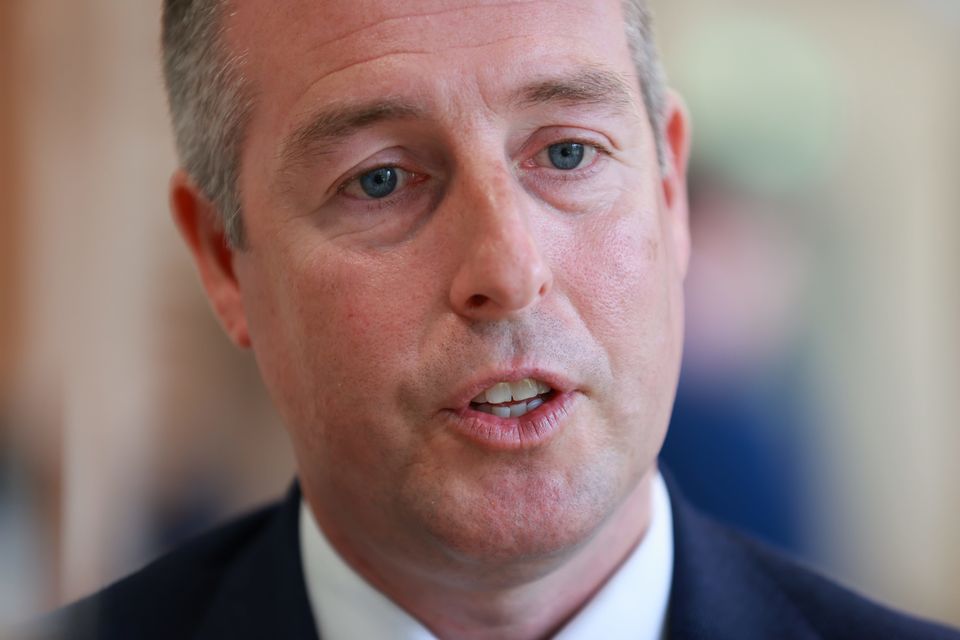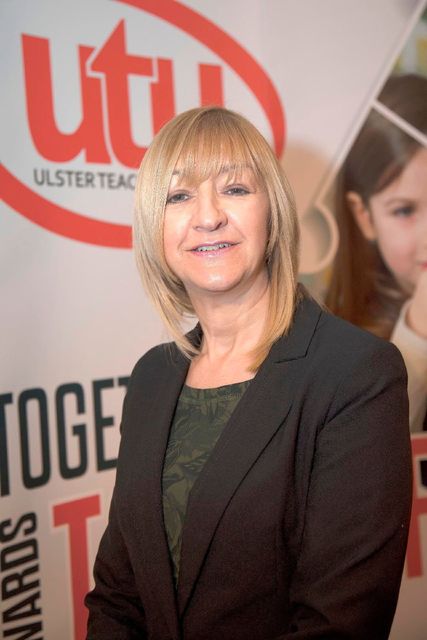The Education Minister has said he is ‘disappointed’ by teaching unions’ decision to ballot on strike action before Christmas.
It was revealed earlier today that at least three unions – the UTU, NASUWT and INTO – will be involved in a vote to reinstate industrial action as current salaries place teachers at the bottom of the UK profession’s pay league.
A fourth union, the NEU has announced an indicative ballot of members in relation to the dispute.
This comes just a few months after a long-running dispute over pay and conditions was ended as teachers accepted a resolution to their pay dispute. Any further action will be in relation to 2024/25 pay.
Reacting to the news that schools across Northern Ireland could face further disruption, Paul Givan expressed his “disappointment” and said that any pay increases “must be affordable”.
“On Monday, the Executive announced October monitoring allocations and I am currently considering the implications of the additional financial allocation to Education,” said the DUP minister.
Education Minister Paul Givan has been warned by teaching union leaders that ‘if he wishes to avoid industrial action, he needs to make a satisfactory offer on pay’ (Liam McBurney/PA)
“It was with disappointment that I was notified today of the decision by a number of teachers’ unions to proceed to ballot their members for industrial action in the coming weeks.
“Since my appointment as Education Minister, earlier this year my focus has been on improving the educational experience of all our children and young people, and on the staff who make that possible. To that end, I secured Executive funding to resolve the long running industrial dispute on teachers’ pay.
“This agreement ended industrial action by teachers in April, and I had hoped that this would allow us to increase stability and work together to improve the educational experience of our children.
“Any proposals for a teachers’ pay award must be affordable and this is difficult given the current financial pressures, however we will continue to work with the TNC joint pay group to seek a resolution.”
Announcing the decision to ballot members, the UTU said the despite the NI teachers find themselves “as the lowest paid members of the profession across these islands”
Jacquie White, General Secretary of the UTU, added: “Despite promises from our politicians and decision makers to ensure our teachers are equally valued, the marked lack of progress and commitment here on 2024-25 pay negotiations is causing grave concern.
“We call on the Minister to address this issue as a matter of priority, restore the pay to fair and equitable levels, and allow us to move forward.”
Jacquie White, General Secretary Ulster Teachers Union.
Industrial action over the past two years had seen schools close as teachers took strike action.
In April a formal offer on teachers’ pay for 2021, 2022 and 2023 had been accepted by Northern Ireland’s five main teaching unions.
The pay settlement agreed by the Teachers’ Negotiating Committee (TNC) included a rise in the starting salary for teachers in Northern Ireland to £30,000.
“For too long the profession here seems to have been down-graded. Indeed it took years of campaigning and eventually strike action before our teachers received a pay deal which put them in line with their colleagues in GB,” continued Ms White.
“The fact that for some this represented an almost 25% salary increase shows just how far behind NI teachers’ pay had fallen and maybe because of that it seemed respect for teaching was lagging behind other degree level professions too.
“This pay deal was hard-fought and forced our members to take a stance on striking though many were reluctant to do so but when children’s education is suffering then something had to be done.
“Now that teachers’ pay elsewhere in GB has risen we again find ourselves at the back of line in the profession’s pay league.”
Concerns also remain over teacher workloads. A recent survey of the workforce from Think 1265 – a teacher led research group – showed that 93% of teachers said they cannot normally complete their work within school working hours.
Just over 90% said their working life was ‘stressful’, while 94.2% said they would vote for action short of strike if the current situation failed to improve.
Read more
Teaching union INTO said the decision to ballot for strike action was unanimously decided by its Committee. The union added it had no option but to seek a mandate for industrial action from the membership.
“This course of action has been forced upon INTO members following the failure of the employers and Department of Education [DE] to make a pay offer to teachers and school leaders for the 2024/25 year, while teachers and school leaders in England receive a pay award of 5.5% for 2024/2025,” the union said.
Mrs Geraldine McGowan, chair of the INTO Northern Committee, said there is now a real threat that all the good work done in ending the previous dispute will be undone.
“Teachers feel they have no option given the inaction by the employers and Department on the issue of pay,” said Ms McGowan.
“There is still time to prevent this dispute becoming a prolonged and damaging one threatening all the good work and improved relationships across the system.
“Consequently, we will be balloting teachers on strike and action short of strike from Monday November 25 to Monday December 16 seeking support to commence a campaign of industrial action up to and including strike action, if necessary.
“INTO members have demonstrated that they will take action when needed so that a strong message can be sent to the employers. INTO will not be found wanting.
“I have faith that our members will follow such action resolutely to a conclusion. It is now over to the employers and the Department of Education.”
Justin McCamphill, NASUWT national official, said teachers are continuing to struggle to make ends meet.
“Inflation has not gone away. The significant increase in prices, for food and energy in particular, are hitting teachers hard,” he said.
“When this is combined with high interest rates and ever increasing rents, teachers cannot make ends meet.
“Teachers in Northern Ireland have watched since the summer as their counterparts in the rest of the UK have received significant pay increases for this academic year and are telling us that they are fed up with being left behind.”
The Department of Education has been contacted for comment.

